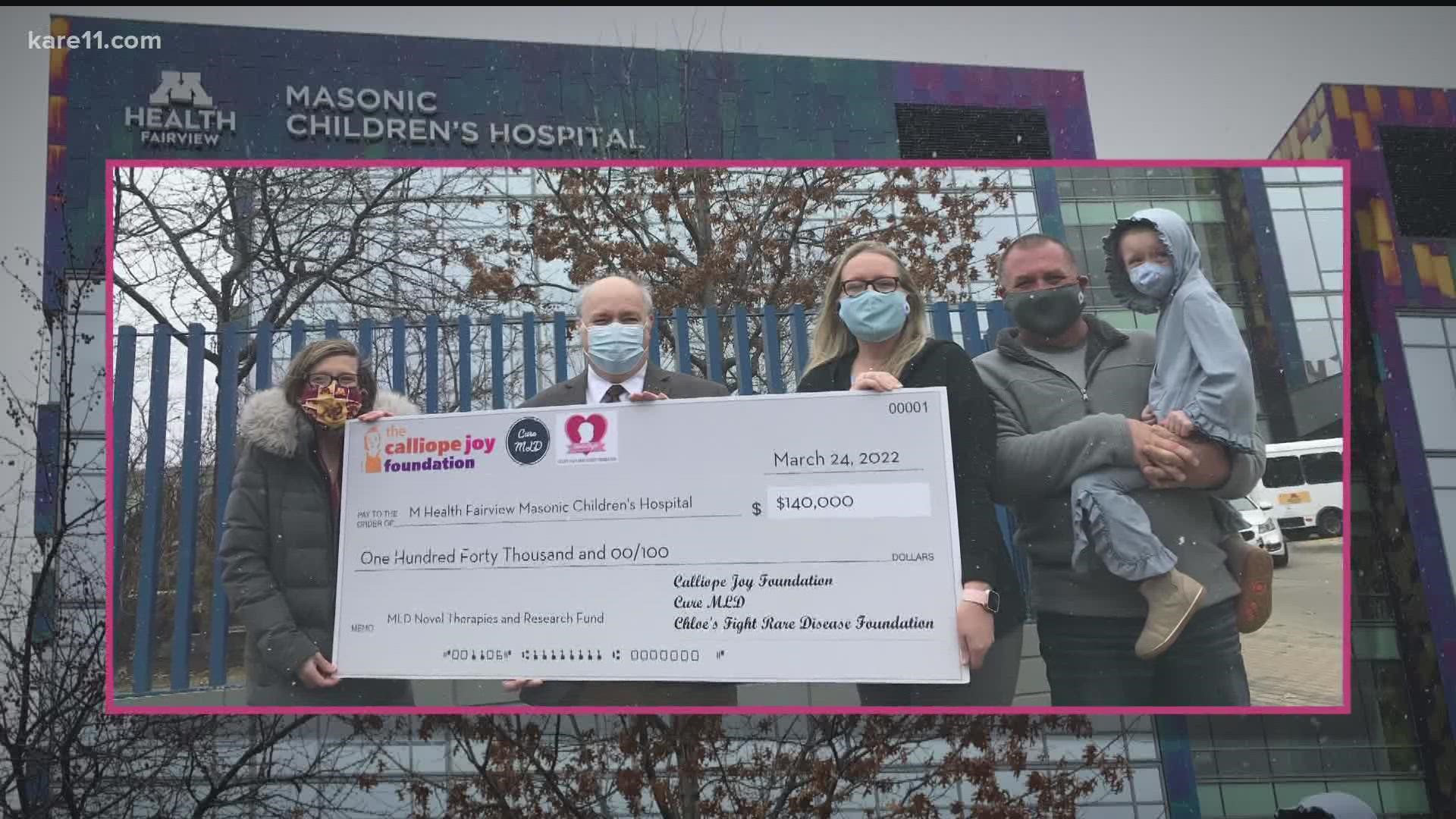MINNEAPOLIS — A 5-year-old Alabama girl who made medical history in Minnesota made a return trip this week to deliver a special gift to her doctor.
Celia Grace Hamlett was in town for a checkup, six months after becoming the first person in the United States to receive an experimental gene therapy treatment for metachromatic leukodystrophy (MLD) — a rare and often fatal genetic disease.
Celia traveled all the way to M Health Fairview Masonic Children's Hospital for the groundbreaking treatment because Dr. Paul Orchard helped her get special FDA clearance to perform the therapy.
Celia Grace and her family returned to M Health Fairview this week to present a $140,000 check to Dr. Orchard in order to continue his mission of helping all kids with rare disorders known as "leudodystrophies."
The money was raised by three nonprofits: Chloe's Fight Rare Disease Foundation, the Cure MLD Foundation and the Calliope Joy Foundation.
KARE 11 last spoke with Dr. Orchard in November of 2021, who said at the time that Celia Grace was already having an impact on others. The FDA had just given clearance for two other children to receive the therapy at M Health Fairview, and he said he hoped the children would ultimately clear more hurdles and be able to receive the life-saving treatment.
And at the time of Celia's treatment in September, Orchard said things were going well, but Celia wouldn't be out of the woods quite yet.
"The goal of the procedure is to give her a normal, healthy life, so we'll be following her for at least 15 years, following the procedure, to make sure that things are going well," he said. "The technology that we're using for Celia can be applied to a number of different types of disorders. Some of them are enzyme deficiencies like hers, some are red blood cell problems like sickle cell anemia, so there is great utility in these new approaches. This is where the field is going."
Watch more Breaking The News:
Watch all of the latest stories from Breaking The News in our YouTube playlist:

